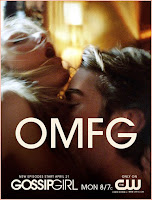 I’m subverting blog post/comment convention in order to share the Q&A that’s been going on in comments on Laura’s inaugural post here this past week (Book Smarts), because the questions GWP readers posted so far are ones I hear a lot, and I know everyone’s going to benefit from Laura’s responses. Have at it! And please feel free to post in comments book publishing industry related topics you’d like to Laura to address in a future post. – GWP
I’m subverting blog post/comment convention in order to share the Q&A that’s been going on in comments on Laura’s inaugural post here this past week (Book Smarts), because the questions GWP readers posted so far are ones I hear a lot, and I know everyone’s going to benefit from Laura’s responses. Have at it! And please feel free to post in comments book publishing industry related topics you’d like to Laura to address in a future post. – GWP
Blogger Ralphie said…
That marketing thing is difficult. Is it really true that the authors of all those terrific, sensitive, gorgeous-writing-filled books I read were out there “selling themselves” to get their first book published? I guess so, but it all just seems so… sad.
Blogger LauraM said…
I entirely agree, Ralphie. Marketing CAN be hard, and luckily for all of us, there are still editors and agents in this industry who are committed to finding those terrific, sensitive, gorgeous-writing projects without needing all the buzz. But the reality of book publishing is that it’s a narrow-margin enterprise. Want to guess how many books actually earn a profit for the author and publisher? It’s fewer than you think, and the pressure is on editors to champion the books that will make money, not lose it. So if you can offer your editor terrific, sensitive, gorgeous writing AND a solid marketing pitch, then you’ll have a huge advantage. And take heart—these days, having a web presence is very easy, and that’s a great first start to creating a platform for yourself. Start a blog, post on others’ blogs, be active in your writing. Let the rest follow from there. —Laura
Blogger Jay said…
Great advice, thanks! It’s a bit daunting to go back to my proposal and give it the overhaul you suggest but I can see how your suggestions will make it so much better. Do you think it’s worth hiring a professional look over/edit the proposal before I submit it?
Blogger Ericka said…
My problem has been Right Freeway, Wrong Lane. I’ve been in the “industry” a long time, a solid midlist nonfiction writer. And, I’m good at the marketing thing — I have website, blog, lots of PR experience and reading experience and radio and even TV — but my career has largely been for my non-fiction. And now I’m about to send my LITERARY NOVEL out there (in a month or so) and I fear that all that experience in the non-fiction realm won’t translate to the literary world. My “platform” has been parenting writing, and my novel is not that. (Though it is family-based.) Suggestions for how to spin my experience? I’m afraid it will seem like Apples and Oranges.
Blogger Caroline said…
This is so helpful to read right now, Laura, and I’m sure I’ll have questions for your future posts! As you know, I sold (modestly) one book, but now I’m working on something I’m hoping will have a broader audience, and your tips about presenting the proposal are perfectly timed for me. I’ll keep checking in for more!
Blogger LauraM said…
Hi Caroline, I’m so happy you posted! How are you, and how is your book coming along? I’d love to hear. And do ask any questions, I promise I’ll answer them if I can.
Ericka, hi! You know, I think you’re underestimating the value of having had previously published books, even if they are in a different category. The trick is to use those books to show that you have a solid foundation as a publisher writer. Make sure that your bio includes any and all positive reviews, blurbs, and media coverage for anything you’ve published before. And keep in mind that unless it’s a very high-level editor who is looking at your work, it’s not likely anyone is going to expect you to have had previous bestsellers. Midlist is a good place to be … dependable, successful. Just replace “midlist” with “backlist” (read: My books are STILL selling even after several years!), and you’ll be surprised what kind of attention that can get you. —L
Image cred
 Interesting review this weekend by Janet Maslin in the NYTimes of a book called Girls Like Us: Carole King, Joni Mitchell, Carly Simon — and the Journey of a Generation ,
Interesting review this weekend by Janet Maslin in the NYTimes of a book called Girls Like Us: Carole King, Joni Mitchell, Carly Simon — and the Journey of a Generation ,








